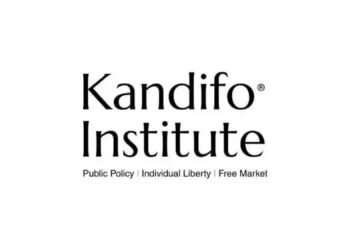Angola’s recent implementation of the Incremental Production Decree has drawn praise from global energy players, with Norwegian multinational Equinor hailing the new fiscal reforms as a landmark development.
Nina Koch, Equinor’s Senior Vice President for Africa, expressed optimism about the decree, noting that it addresses critical industry challenges.
“The new terms are able to increase investment and boost oil and gas production in Angola, as they improve the commerciality of developing fields in mature blocks and underdeveloped areas.”
Nina Koch, Equinor’s Senior Vice President for Africa
According to Koch, the reforms not only unlock opportunities for developing stranded resources but also foster exploration near existing infrastructure and increase recovery from producing fields.
These measures are expected to counteract declining production levels and ensure the sustainability of Angola’s oil and gas sector.
“The decree is certainly strengthening the business case for many projects in Equinor’s portfolio, including lifetime extension opportunities for infrastructure in our partnerships,” Koch added.
According to Koch, the new fiscal terms align with Equinor’s broader strategy to maximize the value of its global assets.

“The new fiscal terms can work as a catalyst in our strategy to extend the longevity of our production outside Norway, while securing value for decades to come for our partnerships and the Angolan society.”
Nina Koch, Equinor’s Senior Vice President for Africa
The potential for economic transformation is substantial. By facilitating investment in underdeveloped areas and maximizing recovery from existing fields, Angola is not only addressing immediate challenges but also laying the foundation for sustainable, long-term growth.
The Incremental Production Decree is part of a broader strategy by the Angolan government to revitalize its oil and gas industry, which remains central to the country’s economy.
Angola, Africa’s second-largest oil producer, has faced challenges in recent years due to declining output from mature fields and fluctuating global oil prices.
To address these issues, the government has implemented regulatory simplifications, improved licensing processes, and fiscal adjustments to create a more competitive and investor-friendly business environment.
Regional and Global Implications

Equinor’s endorsement of Angola’s reforms highlights the country’s emerging leadership in the African energy sector.
The African Energy Chamber (AEC), a prominent voice for the continent’s energy industry, has also lauded the decree as a model for other African nations.
NJ Ayuk, Executive Chairman of the AEC, remarked, “Equinor’s acknowledgment of these reforms underscores Angola’s leadership in adapting to industry demands, and we believe these efforts provide an outstanding case study for other African nations seeking to attract investment and foster sustainable energy development.”
The AEC has consistently advocated for policies that unlock Africa’s energy potential, and Angola’s Incremental Production Decree is seen as a transformative example of how proactive governance can drive sector-wide growth.
Ayuk added that the decree’s success demonstrates the power of innovative policy-making in addressing industry challenges and maximizing the continent’s resource wealth.
One of the key features of the Incremental Production Decree is its focus on stranded resources—oil and gas reserves that have been difficult to exploit under previous fiscal and operational frameworks.
The decree also incentivizes exploration near existing infrastructure, a cost-effective strategy that can quickly bring additional production online. For mature fields, the policy supports enhanced recovery techniques, ensuring that remaining reserves are extracted efficiently.
As Angola moves forward with its ambitious reforms, the country’s oil and gas sector appears poised for a renaissance. The Incremental Production Decree reflects a strategic vision that balances the need for immediate investment with long-term sustainability.
The global energy industry will undoubtedly watch Angola’s progress closely. If successful, the decree could serve as a blueprint for other countries seeking to modernize their oil and gas sectors and attract foreign investment.
As NJ Ayuk of the AEC noted, Angola’s proactive measures provide a compelling case study for sustainable energy development across Africa.
With strong international backing and a clear strategy, Angola is charting a path toward a prosperous and resilient energy future.
READ ALSO: Non-Food Inflation Declines, But Overall Inflation Hits 23% in November























